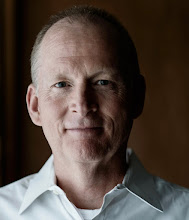 The post below comes from Seth Godin's blog. Seth didn't address this post to churches, or church leaders, but I'm sure seeing some powerful implications for churches and their leaders in these words.
The post below comes from Seth Godin's blog. Seth didn't address this post to churches, or church leaders, but I'm sure seeing some powerful implications for churches and their leaders in these words.People and brands and organizations that stand for something benefit as a result. Standing for something helps you build trust, makes it easier to manage expectations and aids in daily decision making. Standing for something also makes it more fun to do your gig, because you're on a mission, doing something that matters. Of course, there's a cost. You can't get something for nothing.
It's frustrating to watch marketers, politicians and individuals fall into the obvious trap of trying to stand for something at the same time they try to please everyone or do everything.
You can't be the low-price, high-value, wide-selection, convenient, green, all-in-one corner market. Sorry. You also can't be the high-ethics CEO who just this one time lets an accounting fraud slide. "Because it's urgent."
You can't be the big-government-fighting, low-taxes-for-everyone, high-services-for-everyone, safety-net, pro-science, faith-based, anti-deficit candidate either. You can't be the work-smart, life-in-balance, available-at-all-hours, high-output, do-what-you're-told employee.
To really stand for something, you must make difficult decisions, mostly about what you don't do. We don't ship products like that, we don't stand for employees like that ("you're fired"), we don't fix problems like that.
It's so hard to stand up, to not compromise, to give up an account or lose a vote or not tell a journalist what they want to hear.
But those are the only moments where standing for something actually counts, the only times that people will actually come to believe that you in fact actually stand for something.

